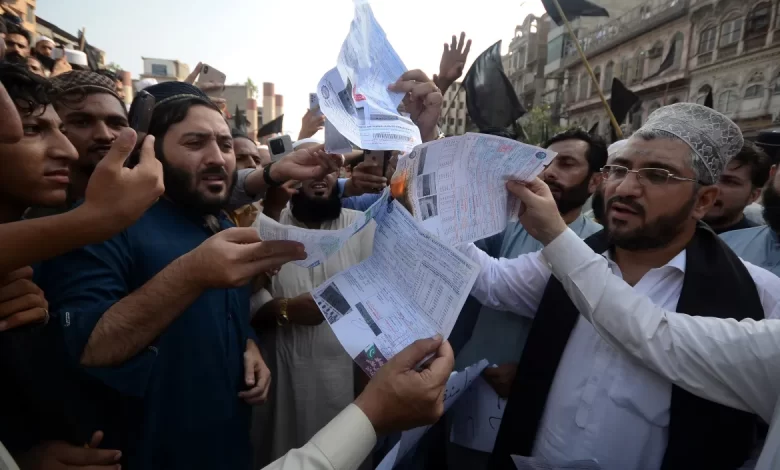
In this era of inflation, every day seems to bring a new financial burden for the poor. Residents of Peshawar are now grappling with skyrocketing electricity bills, leaving many bewildered and distressed.
Anwar, a government employee from Peshawar, shared his struggles in an interview with TNN. Despite having a decent salary, he finds it increasingly difficult to cover household expenses, children's school fees, and rent. Anwar lamented that if he, with his relatively good income, is struggling, how can daily wage earners manage to survive? He pointed out that laborers often cannot work in extreme heat, rain, or during holidays like Eid, Muharram, and Ramadan, leaving their families without food.
Adding to their woes, the government frequently raises electricity tariffs. Despite facing five to seven hours of power outages daily, residents are hit with inflated electricity bills loaded with various taxes, including TV, radio, and fuel surcharges.
Also Read: Series of Violent Incidents in Peshawar Leave Several Dead and Injured
Anwar highlighted that about 50 percent of people have turned to solar energy to cope with power outages, but the poor cannot afford such solutions. They are left with the daunting task of paying ever-increasing electricity bills. He also noted that many people are unaware that electricity rates in Pakistan vary throughout the day, with prices doubling during peak evening hours.
Zahid Hussain, another resident of Peshawar, echoed these concerns. He described how the fluctuating unit prices and additional taxes make it nearly impossible for the poor to pay their electricity bills. He detailed his family's struggles to manage their electricity consumption, yet still being shocked by high bills due to overhead charges.
Zahid shared his electricity bills for the past few months:
He emphasized that while the wealthy can manage these costs, the poor and salaried employees cannot keep up with the rising bills.
The government has recently announced fixed charges ranging from Rs. 200 to Rs. 1000 per month for domestic consumers, effective July 1, 2024. Commercial and industrial users will see even steeper increases, with fixed charges rising by 300 to 355 percent. For instance, commercial consumers with a load of 5 KW or more will now pay Rs. 2000 per month, up from Rs. 500.
The National Electric Power Regulatory Authority (NEPRA) has introduced new tariffs, significantly affecting consumers using more than 300 units per month. These changes have further strained household budgets across the region.
TNN contacted PESCO (Peshawar Electric Supply Company) for comments, but their officials declined to provide any statements at this time.
The rising electricity costs and frequent power outages continue to plague residents, pushing many to the brink of financial collapse. The situation calls for urgent measures to address the affordability and reliability of electricity for all citizens.